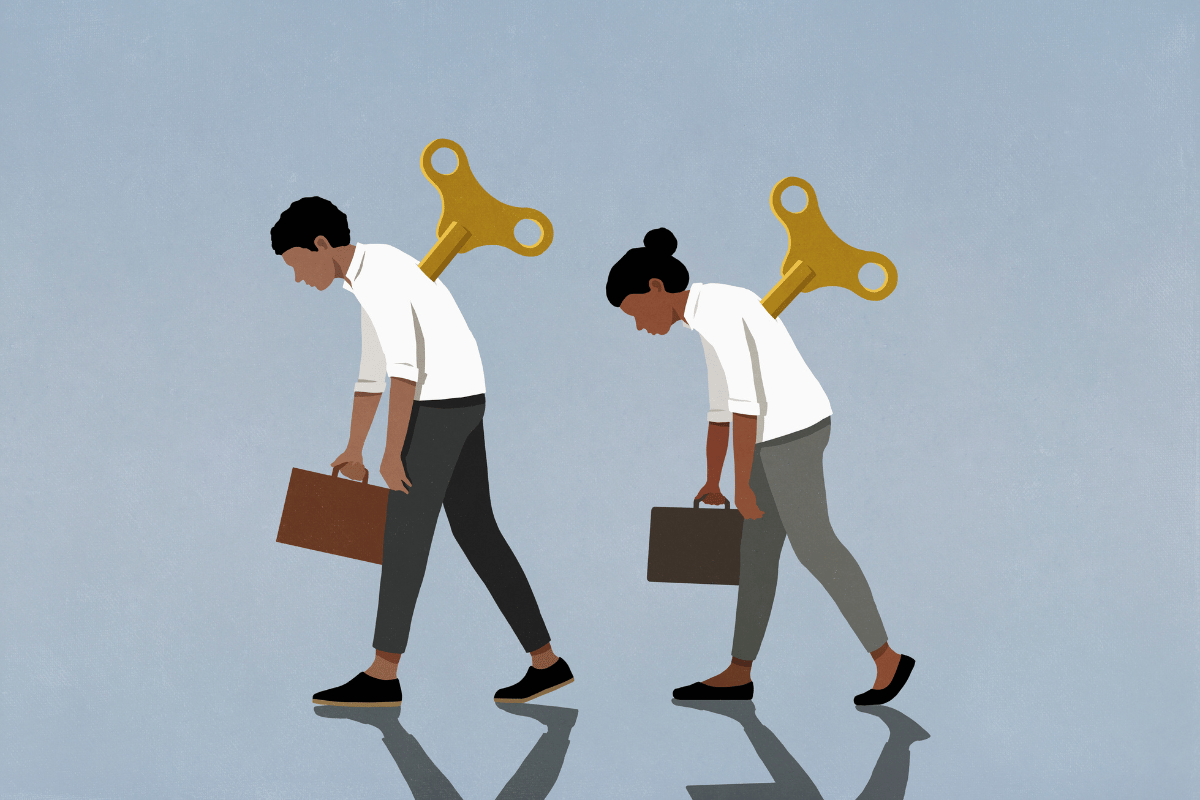
So you're in a job you love. You sit next to your work wife, you do tasks you're good at, and you're happy with how far you've come. But you're utterly exhausted. And a bit despondent. So what now?
That's the particular challenge many of us are facing. We're in jobs we always wanted but they are slowly burning us out. Earlier this year, Abbie Chatfield quit her "dream" radio show Hot Nights with Abbie Chatfield. "I simply wasn't enjoying myself day to day in that environment" she wrote on Instagram. "I simply need to put my energy into projects that bring me joy and that energise me, rather than draining me." And she's not the only one wanting a change.
Findings from the 2023 State of the Future of Work Report, have revealed that Australian workers are in poorer physical and mental health since the pandemic began. What's more, over a third of prime-aged workers (between 25-55 years of age) are considering quitting their jobs.
Amanda Gordon is a workplace psychologist for job site Indeed, and she has over 25 years of experience in her field. Speaking with Mamamia, she says the mood right now among a lot of people is burnout.
It's not completely unexpected - we are in the final stages of 2023, and with this period comes the mad scramble to get everything done by December. Or perhaps you've been go-go-go the whole year and your energy is starting to wane.
If you're feeling this right now, Gordon says there's a few things you can do to address it.
Watch Mamamia Confessions: our horror job interview stories. Post continues below.